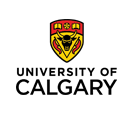 Buried in the deluge of coverage about the financial crisis are news items about the state of our social and natural capital that should be ringing alarm bells. The Global Footprint Network recently reported that as of September 27 the world had used up the entire allotment of natural capital that our planet generates on an annual basis. Natural capital includes things like our water supply, the sustainable harvest from the planet’s forests, oceans and croplands and the capacity of the atmosphere to assimilate the carbon dioxide generated through the burning of fossil fuels. The message from the GFN was that from there ‘til December 31 we were drawing down the stocks of natural capital built up by the planet over millennia. The fact is we have been doing this consistently for many years.
Buried in the deluge of coverage about the financial crisis are news items about the state of our social and natural capital that should be ringing alarm bells. The Global Footprint Network recently reported that as of September 27 the world had used up the entire allotment of natural capital that our planet generates on an annual basis. Natural capital includes things like our water supply, the sustainable harvest from the planet’s forests, oceans and croplands and the capacity of the atmosphere to assimilate the carbon dioxide generated through the burning of fossil fuels. The message from the GFN was that from there ‘til December 31 we were drawing down the stocks of natural capital built up by the planet over millennia. The fact is we have been doing this consistently for many years.
The OECD reports that over a ten-year period, the gap between rich and poor in Canada has grown to one of the largest gaps of any OECD country. This is not good for our social capital - the stock of assets we accumulate in society, in our communities and in our public institutions. These assets include trust and good will, volunteer activity in our communities, effective governance, and our health care and education infrastructure. We draw on this social capital in times of need. It is indeed a crisis that during a decade of unprecedented economic wealth generation most of these assets have declined. This loss of social capital contributes to a reduced capacity to act collectively when crises emerge.
For some time now, in order to fuel its insatiable appetite, our economy has been borrowing heavily against our natural and  social capital stocks. Despite having recklessly converted critical social and natural capital into economic capital, the economy has tanked. And the solution we are being offered? Keep feeding the beast.
social capital stocks. Despite having recklessly converted critical social and natural capital into economic capital, the economy has tanked. And the solution we are being offered? Keep feeding the beast.
We need a national and global debate that generates systemic and sustainable solutions to the current crisis. Sustainable development is about the realization that there are no independent economic, social or environmental silos. These are deeply integrated and dynamic aspects of a whole system through which we secure well-being for ourselves and for future generations. We need a debate about the appropriate deployment of resources to shore up financial, natural and social capital.
Restructuring in the face of the current crisis should include a national commitment to make the minimum wage a living wage and peg its movement to the cost of living. It should also include a commitment to end homelessness by reinstating an appropriately funded national affordable housing strategy to replace the one the free marketeers dismantled during the Mulroney years. These two policies alone would go a long way to shoring up our social capital.
The Alberta Tar Sands is the posterchild of natural and social capital depletion. Its development is devouring the windfall profits accumulated from the soaring oil prices of the past decade. We need to hammer out a national consensus that allows us to divert a large portion of that windfall toward the development of a renewable energy economy. A companion policy would be the  creation of a transition economy in Southern Ontario and Quebec. The fallout of this current crisis may include an automobile industry that is weakened to an even greater extent than the financial sector. The manufacturing capacity of Southern Ontario and Quebec could be transformed into a renewable energy manufacturing powerhouse to rival the German renewables industry.
creation of a transition economy in Southern Ontario and Quebec. The fallout of this current crisis may include an automobile industry that is weakened to an even greater extent than the financial sector. The manufacturing capacity of Southern Ontario and Quebec could be transformed into a renewable energy manufacturing powerhouse to rival the German renewables industry.
Finally, a fundamental restructuring of our system of national accounts is long overdue. There is universal agreement that GDP was never up to the task of representing the well-being of nations. This crisis is an opportunity to introduce a system of social, ecological and economic accounts at all levels of governance. Two initiatives I have been involved in that are pursuing just such an agenda include the Canadian Index of Well-Being and the Sustainable Calgary State of Our City Reports.
We face a triple threat of economic, social and ecological crises triggered by economic hubris. This crisis can indeed be turned into an opportunity if we seize the day.
Dr. Noel Keough is an Assistant Professor of Sustainable Design at EVDS. He co-authored the 2011 State of Our City Report released by Sustainable Calgary. For more information on Keough, click here.
Click here for more faculty featured research.

